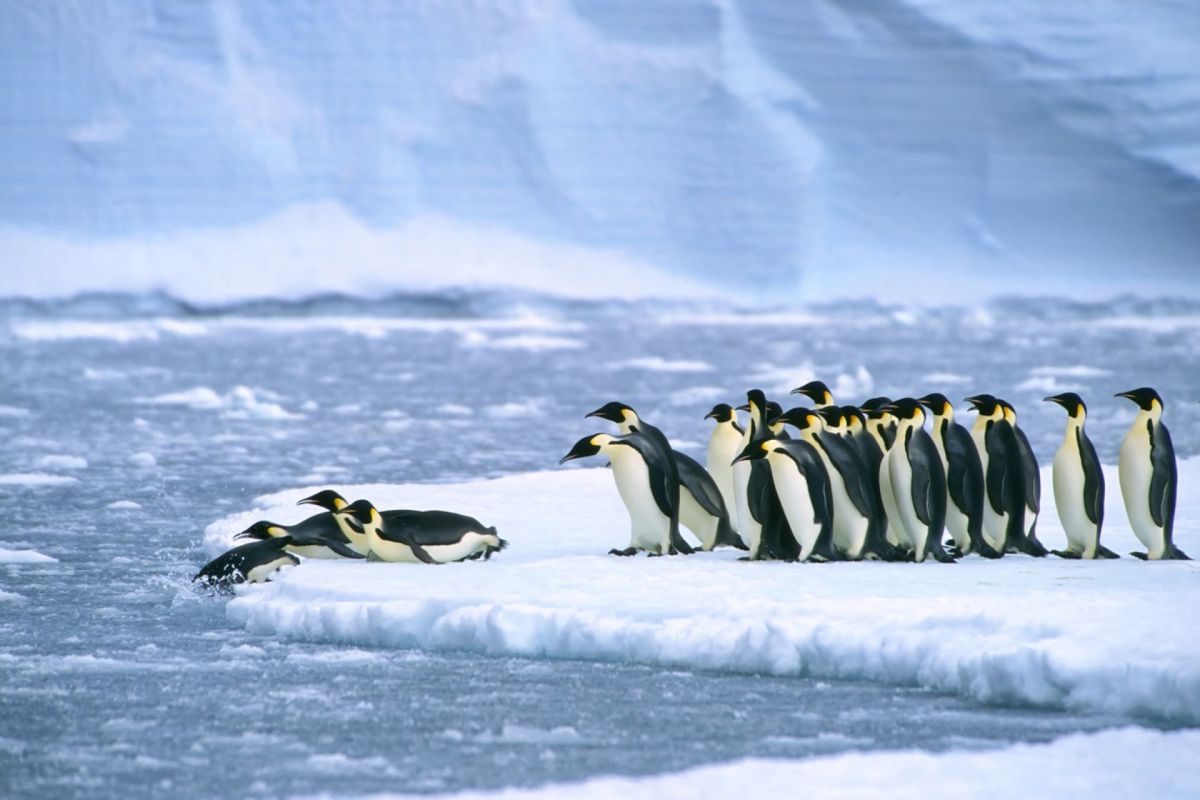In the vast, icy expanse of Antarctica, amid the pristine white landscape, an unlikely hero emerges — poo. But in this case, it's not just any excrement — it's the beacon guiding scientists to newfound colonies of emperor penguins. This curious discovery was made possible by spotting guano, or penguin poo, from space.
What's happening?
In a new study, Dr. Peter Fretwell, a geospatial scientist with the British Antarctic Survey, used satellite images to identify previously unknown emperor penguin colonies. The discovery, published in Antarctic Science, brings the total number of known colonies to 66.
These findings are particularly significant given the species' vulnerability to environmental changes, especially in light of recent breeding failures attributed to diminishing sea ice in the Bellingshausen Sea.
"All except one of these colonies are small with less than 1,000 birds, so finding these new colonies makes little difference to the overall population size. In fact, it is overshadowed by the recently reported breeding failures due to the early and fast ice loss," Fretwell told the Guardian.
Why is ice loss concerning?
Emperor penguins, the largest yet least prevalent Antarctic penguin species, according to the World Wildlife Fund UK, face an existential threat due to declining sea ice, as the Guardian reported.
With an estimated total population of about 600,000, these iconic birds rely on stable sea ice for breeding, laying eggs in May and June, and nurturing their chicks until December or January. However, the rapid decline in sea ice extent — with the past two years marking record lows — jeopardizes their breeding cycles and overall survival, according to the news outlet.
This trend underscores the broader crisis of some significant changes due to the Earth's overheating. The melting ice contributes to rising sea levels, which can lead to flooding and other issues in coastal areas around the world.
It also affects the wildlife that depends on the ice, like polar bears, who need the ice to hunt and survive. Additionally, the ice itself helps to keep the planet cooler by reflecting sunlight back into space. So, the ice melting away can lead to even more warming.
What is being done about ice loss?
Addressing the melting ice and the subsequent decline in emperor penguins necessitates concerted global action to combat climate change. While the discovery of new colonies offers a glimmer of hope, it serves as a stark reminder of the urgent need for mitigation efforts.
Policy interventions aimed at reducing the amount of harmful chemicals in our ecosystem are imperative to curb the pace of sea ice loss and preserve critical habitats for these vulnerable species.
Additionally, local and individual actions, such as reducing carbon footprints and advocating for sustainable practices, play a crucial role in fostering a more resilient future for both penguins and humanity.
Join our free newsletter for weekly updates on the coolest innovations improving our lives and saving our planet.









